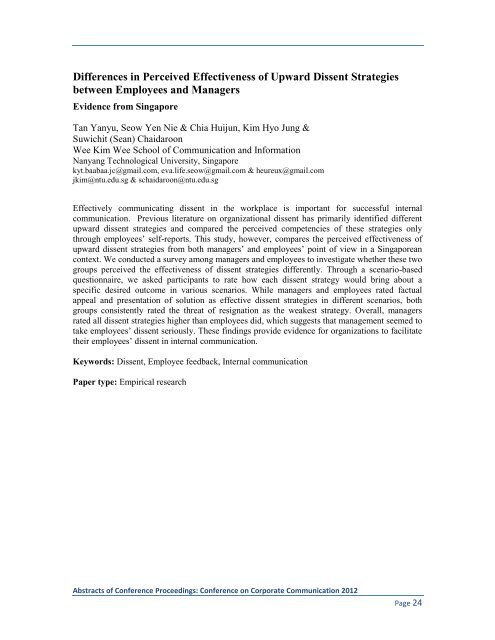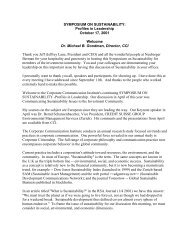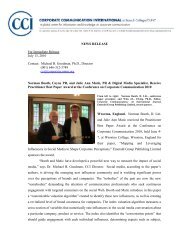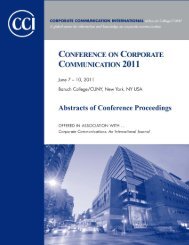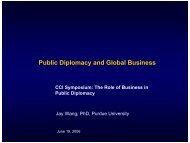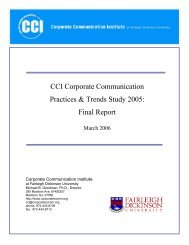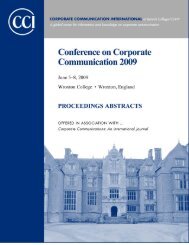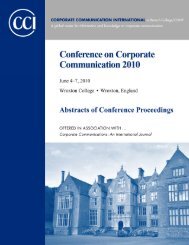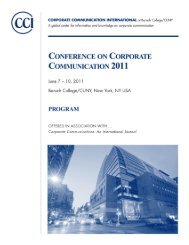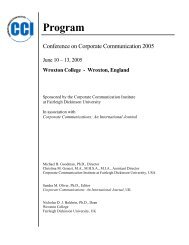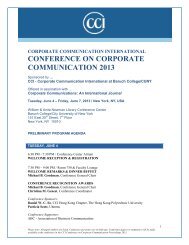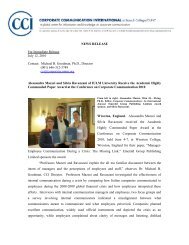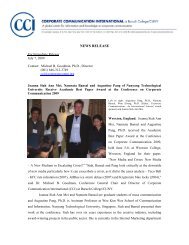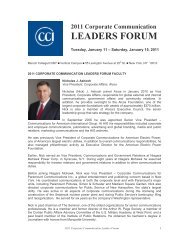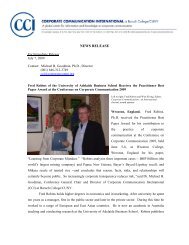Proceedings: Conference on Corporate Communication 2012 Page 1
Proceedings: Conference on Corporate Communication 2012 Page 1
Proceedings: Conference on Corporate Communication 2012 Page 1
You also want an ePaper? Increase the reach of your titles
YUMPU automatically turns print PDFs into web optimized ePapers that Google loves.
Differences in Perceived Effectiveness of Upward Dissent Strategies<br />
between Employees and Managers<br />
Evidence from Singapore<br />
Tan Yanyu, Seow Yen Nie & Chia Huijun, Kim Hyo Jung &<br />
Suwichit (Sean) Chaidaro<strong>on</strong><br />
Wee Kim Wee School of Communicati<strong>on</strong> and Informati<strong>on</strong><br />
Nanyang Technological University, Singapore<br />
kyt.baabaa.jc@gmail.com, eva.life.seow@gmail.com & heureux@gmail.com<br />
jkim@ntu.edu.sg & schaidaro<strong>on</strong>@ntu.edu.sg<br />
Effectively communicating dissent in the workplace is important for successful internal<br />
communicati<strong>on</strong>. Previous literature <strong>on</strong> organizati<strong>on</strong>al dissent has primarily identified different<br />
upward dissent strategies and compared the perceived competencies of these strategies <strong>on</strong>ly<br />
through employees’ self-reports. This study, however, compares the perceived effectiveness of<br />
upward dissent strategies from both managers’ and employees’ point of view in a Singaporean<br />
c<strong>on</strong>text. We c<strong>on</strong>ducted a survey am<strong>on</strong>g managers and employees to investigate whether these two<br />
groups perceived the effectiveness of dissent strategies differently. Through a scenario-based<br />
questi<strong>on</strong>naire, we asked participants to rate how each dissent strategy would bring about a<br />
specific desired outcome in various scenarios. While managers and employees rated factual<br />
appeal and presentati<strong>on</strong> of soluti<strong>on</strong> as effective dissent strategies in different scenarios, both<br />
groups c<strong>on</strong>sistently rated the threat of resignati<strong>on</strong> as the weakest strategy. Overall, managers<br />
rated all dissent strategies higher than employees did, which suggests that management seemed to<br />
take employees’ dissent seriously. These findings provide evidence for organizati<strong>on</strong>s to facilitate<br />
their employees’ dissent in internal communicati<strong>on</strong>.<br />
Keywords: Dissent, Employee feedback, Internal communicati<strong>on</strong><br />
Paper type: Empirical research<br />
Abstracts of <str<strong>on</strong>g>C<strong>on</strong>ference</str<strong>on</strong>g> <str<strong>on</strong>g>Proceedings</str<strong>on</strong>g>: <str<strong>on</strong>g>C<strong>on</strong>ference</str<strong>on</strong>g> <strong>on</strong> <strong>Corporate</strong> Communicati<strong>on</strong> <strong>2012</strong><br />
<strong>Page</strong> 24


